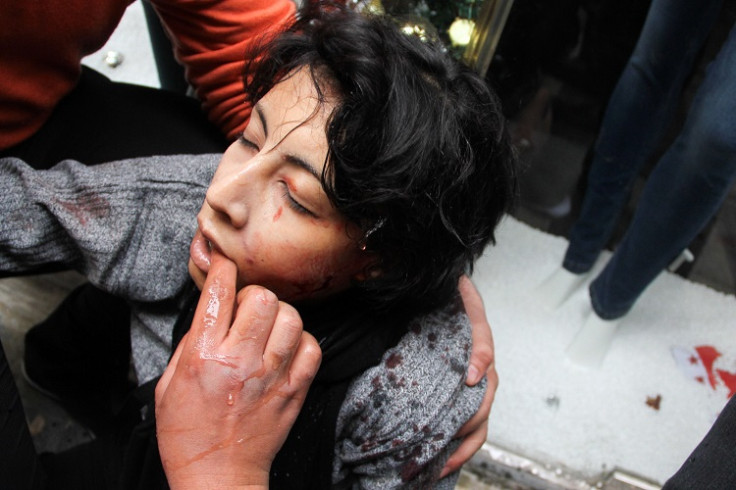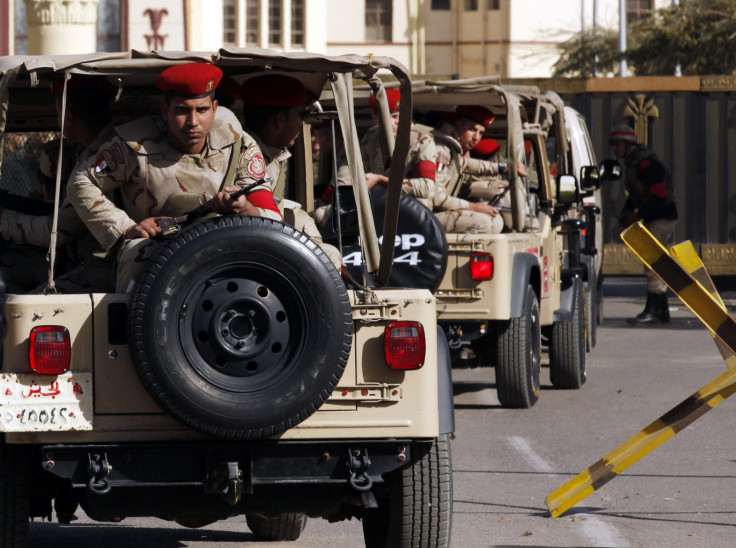Egypt's UN pantomime must not blind us to Sisi's human rights atrocities

If there is one thing Egypt cannot be accused of, it is being unable to give a great performance.
The latest showstopper came last Friday, when the country faced the UN Human Rights Council in Geneva and pledged - with fingers firmly crossed behind their backs - human rights reforms.
With consummate skill, Egypt's representatives dodged international scrutiny of the country's deepening human rights crisis while selling the world a vision of prosperity, growth and stability.
As I watched the session, there was one name in my mind: Shaimaa al-Sabbagh.
Shaimaa died in the streets of Cairo on 24 January 2015. She and a small group of peaceful members of the Socialist Popular Alliance Party had been marching through Downtown Cairo to Tahrir Square.
They wanted to lay flowers for the hundreds who had died in demonstrations, demanding bread, freedom and social justice. But instead of an open road, those marching found armed security forces blocking the way. The march came to a halt, just a few metres from the police lines.
There was a brief discussion between the head of the march and the chief of police, a witness later told us. Then, the police chief jabbed his finger at the protesters.
The security forces opened fire at point blank range.
The moment when the security forces shot Shaimaa is now lost to time. You must piece it together from the jumble of grainy video footage, still photographs and the words of those who were there with her.
"She was lying on my lap and was bleeding from her mouth," one woman who helped rush her to hospital later told us. "She was not moving. And there was not any sign of life on her face."
Almost two months later, the Egyptian authorities still deny it ever happened. And, as the weeks pass, it has become very clear that members of the international community who should be concerned, would also rather pretend it never happened..
The cover-up began immediately.
As pictures of Shaimaa's death sent shockwaves through twitter and Facebook, Egypt's Interior Ministry blamed "infiltrators" for her death – clearing its security forces without any investigation and denying that they had used firearms on that day.
'I testified that the march was peaceful - then they arrested me'
Meanwhile, security forces arrested some of the people who tried to save Shaimaa as she was dying, while the Public Prosecution threatened witnesses to the killing with arrest.
"I testified what I saw, that the march was peaceful." leading rights lawyer Azza Suleiman told us. "After that, the prosecutor told me that I was under arrest."
But haven't we seen this somewhere before?
In June 2009, an Iranian protester with a mobile phone captured the death of 27-year-old Neda Agha Soltan, during the tumultuous demonstrations sparked by Iran's recent presidential election. Activists who took part in the protest said that a gunman with state-sponsored militia shot her.
Then, as now, the footage spread around the world like wildfire.

Iran's authorities tried to shift responsibility, blaming international news networks for "fabricating" the story, accusing the CIA of killing her – even pointing the finger at the doctor who had rushed to Neda's aid.
There are eerie similarities between the deaths of these two women, who died in protests six years and hundreds of miles apart. What is different is the lack of international condemnation of Egypt.
´Sisi won elections in June 2014 with a landslide 96.91% of the vote, against his sole competitor, the leftist politician Hamdeen Sabbahi. There were widespread allegations of vote-rigging and the Muslim Brotherhood, Egypt's biggest political party, was banned from taking part.'
Read IBT's executive editor Orlando Crowcroft's analysis of Sisi here.
States that said they were outraged about the killing of Neda Agha Soltan in Iran in 2009 have been mysteriously tongue-tied about the death of an equally innocent protester in Egypt in 2015.
Shaimaa's name was on no-one's lips at the glamorous investment conference at Sharm el-Sheikh from 13 to 15 March, as Egyptian officials sat down with dignitaries, diplomats and business leaders from around the world.
Governments have pointed to last Friday's UN Universal Periodic Review discussion, to which all members of the Council must submit every four-and-a-half years, as a sign that they are taking the situation in Egypt seriously.
But the truth is, after this March, they know that Egypt will drop off the Council's agenda completely. Egypt will know that it will face no further scrutiny of its human rights record by the body until its next periodic review – in 2019.
Other crises have simply crowded Egypt out, government officials have told us.
But that's a flimsy excuse. The truth is, it's far easier to make friends with Egypt than to stand up to it. Egypt's Foreign Ministry is well known for publicly excoriating anyone who dares to cross them. And no one wants to take on the bully in the playground.
'Today, Egypt's peaceful protesters are staring down the barrel of a gun'
Following nationwide criticism of Shaimaa's killing, including in national Egyptian media, the prosecutor ordered the arrest of the security officer who shot her. Only this month, the prosecutor referred the security officer to trial - but on charges of "beating to death" which carries a softer penalty than "manslaughter" or "murder".
The charge goes against indisputable evidence, as the forensic report stated clearly that Shaimaa was killed as a result of a "direct gunshot on the back".
That very same week, former President Hosni Mubarak's interior minister was cleared by the Egyptian courts of corruption charges, paving the way for his release after he had already been cleared earlier of charges related to killing protestors during the 2011 January uprising.
It is ordinary Egyptians who are paying the price. Today, Egypt's peaceful protesters are staring down the barrel of a gun.
It is their deaths that will return, time and time again, to haunt those states that parrot repeatedly that there can't be development without peace and security, and no peace and security without development, and no peace and security or development without respect for human rights, as they seek to buy into Egypt's future, the authorities' "blueprint of stability, investment and growth".
The fact is that there can be no stability without human rights. It's time for states that say they care about human rights to speak out over Egypt's deepening rights crisis, clearly, unequivocally and together.
Nicholas Piachaud is Egypt researcher for Amnesty International. Find him on Twitter @npiachaud.
© Copyright IBTimes 2025. All rights reserved.






















